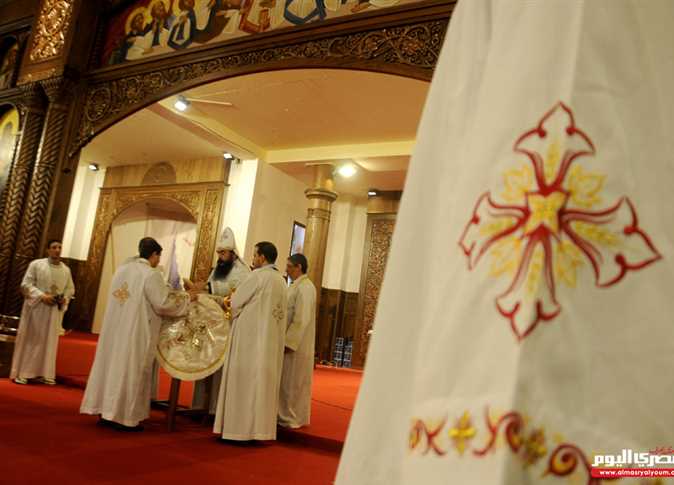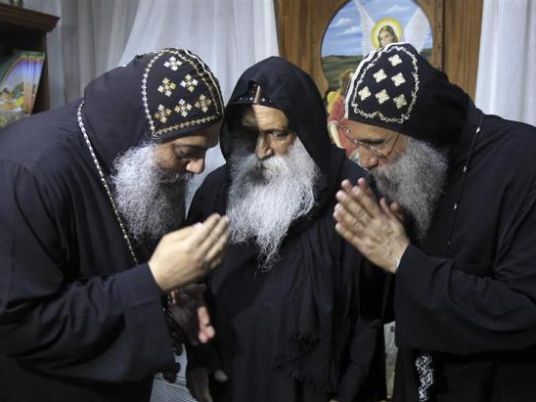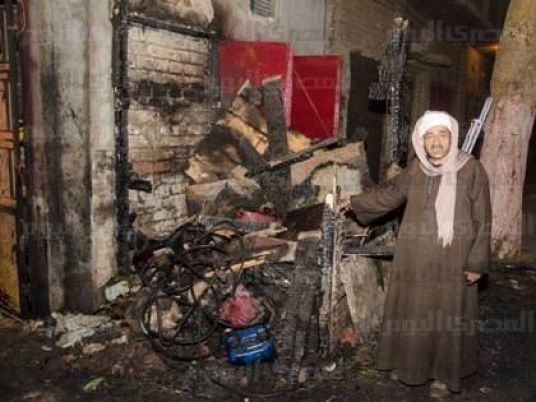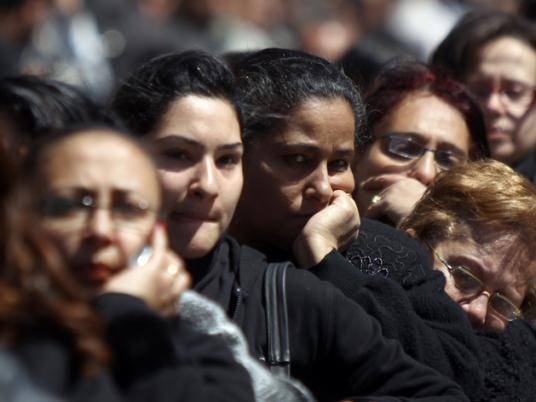Many citizens believe that individuals could play a positive role in counter religious violence and keep revolutionary spirit alive, even as the government fails to do so.
Last Sunday, Copts staged a massive demonstration condemning growing attacks on churches, most notably September’s attack on Marinab Church in Aswan governorate. Fierce clashes broke out between protesters and the military, leaving 25 killed and more than 300 wounded.
Sameh Abdel Razeq, a 28-year-old banker, suggests forming popular committees comprised of both Christians and Muslims in each neighborhood to protect churches.
“The popular committees have proven a success during the revolution. We stood hand in hand before after the New Year’s blast and can unite again to confront extremists,” he said.
Last January, Muslims showed solidarity with Copts after twin bombing attacks on a Christian Church in Alexandria claimed 21 lives. Thousands of Muslims responded by serving as human shields – against possible militant attacks – on the eve of Coptic Christmas.
Nardeen Abdel Noor, a household wife, said that the Supreme Council of the Armed Forces is adopting the same repressive policies of the old regime. “If the government is not going to take an effective step towards the religious persecution we are seeing, I think it’s time to seek the support of the West to stand with us,” said Abdel Noor.
“The situation is escalating rapidly beyond control. There must be another party to intervene in order to secure us since the government has ignored our demands and failed to protect our churches.”
Mina Magdy, a Shubra resident, said that he and his neighbors have agreed to ask Muslim and Christian clerics to hold special sessions against extremism and preach citizens moderation.
“We will start with our own neighborhood. If the idea is met with enthusiasm, we’ll expand our initiative,” Magdy said.
Some seek to adopt other approaches.
“Both Copts and Muslims should collaborate in setting up social development projects that provide better services to the poor without religious discrimination. These projects will teach Egyptians to unite,” said Moatz Sherby, engineer.
Mahmoud Abou al-Azm, a 31-year-old Muslim vendor, believes that Christians would never sabotage their country. “This is why I marched with Christians on Sunday and will take part in any other demonstrations that denounce the passivity of reaching a real, satisfactory solution for what is happening between Coptic Christians and Muslim extremists,” he said.
On Sunday, Muslims joined the Coptic march, which led from Tahrir Square to Ramses Square. The protesters chanted anti-military slogans.
Abou al-Azm, however, believes that individual efforts are inadequate in the face of growing intolerance.
“There must be a radical change,” he said. “Egypt is teetering on the edge of civil war, and the government is turning a blind eye.”




